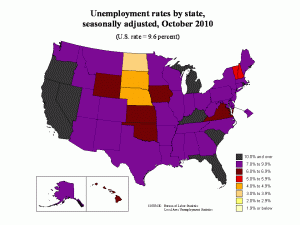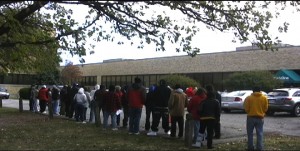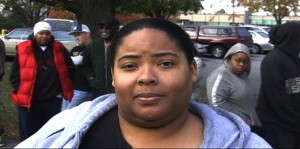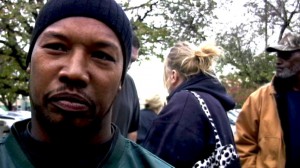Unemployed Graduates
Just graduated and jobless
Recent college graduates are welcomed to the real world
by Rachel Brummer
College graduation is one of the most anticipated days of many young peoples’ lives. It’s the day they get to slip on the gown, slap on the hat and walk across a stage to pick up their diplomas. The degree symbolizes their readiness to enter the real world. It’s the beginning of a new chapter in their lives.
Hold that thought.
Recent graduates are having trouble finding post-graduate employment in their desired career fields.
The national unemployment rate has hovered at just over 9 percent for months. For 20- to 24-year-olds, the group that represents recent graduates, the unemployment rate is almost 15 percent.
- In spring 2011, 1.7 million students graduated
- Companies planned to hire 19.3 % more graduates in 2011
- Just 54,000 jobs were added to the economy in April, barely 33% of what is needed
- 2 of 5 graduates who applied for jobs received an offer in 2011
- Sources: U.S. Department of Education, U.S. Department of Labor
Recent graduates are faced with limited options
Lauren Ott, a 2010 Butler University graduate, decided to move back home after graduating.
“Living with your parents is nice as far as groceries,” Ott said, “but I’d rather be starving on my own and starting my own life; even if I was living in squalor.”
Graduates who return home are often underemployed.
What Does it Mean to be Underemployed?
These people are employed, but are
working in jobs well below their skill
levels. These jobs might be part-time
and do not require a college degree.
Gallup reported that U.S.
underemployment in June, 2011, was
19.1%.
- 53% of graduates are working full-time
- 43% of graduates consider themselves to be underemployed
- 19% of graduates only able to find temporary work
- 71% of graduates wish they had done more in preparation to enter the job market
- Source: Adecco Staffing, U.S. (2010 Survey)
Ott, a secondary education major, went to college to become a high school social studies teacher. She could not find an immediate teaching position and is now looking for something different.
“I really want to be a part of law enforcement, but it’s now kind of handicapped me because I don’t have a degree or any degree that applies to that,” she said. “It’s going to be really hard work in whatever I choose to do because I’m going to be starting from the bottom rung.”
As she applies for positions as a police officer, she said she is working in part-time jobs tutoring students and coaching softball at her old high school. Applications to law enforcement agencies and the travel needed for interviews are expensive.
“It’s like all this money is going out to places and it’s not coming back in,” Ott said. “It seems pointless.”
Other graduates have decided to go back to school and wait for the labor market conditions to improve.
Annie Dolan, a 2009 Butler University graduate, also moved home. She found part-time employment at her old high school and with a distributing company.
She is now at Northern Illinois University working towards a master’s degree in sports administration.
“I never really had aspirations to go to grad school,” Dolan said. “It’s sort of a default thing because I’m underemployed. I feel like I’m going to be underemployed until the economy gets better and I can somehow make networks.”
Kathy Paulson-Gjerde, an economics professor at Butler University, said the economy and labor market will improve only when the country’s level of economic activity changes.
“The whole problem is that we have stagnant growth in the overall economy in terms of production and GDP,” Paulson-Gjerde said. “If people aren’t buying, if product services aren’t changing hands, and firms aren’t producing or they’re shutting down, then you see implications for the labor market in that they don’t need as many workers.”
Recent graduates are tormented by their employment situations
Dolan said she feels like she is in a waiting period in her life.
“You feel like you’re regressing,” she said. “I moved out and went to school. I have my degree and I can get a job; I can live independently. I have to wait for everything, it seems like.”
Ott said she has been spending several hours each day filling out applications, making phone calls and establishing herself online.
“I feel like I’m randomly shooting arrows in the air, hoping they’re going to hit something,” she said.
Recent graduates are not alone
Both Ott and Dolan recognize that plenty of other graduates are in the same boat.
“After awhile, you realize so many other people are in the same position that you’re in; they’re underemployed or they’re unemployed,” Dolan said. “It makes you feel a little better but, at the same time, I have high expectations for myself.”
“I’m hoping someone will see my application and think that I’m the one,” Ott said. “But there’s a million other people trying to do the same thing.”
Recent graduates should not give up
Mary Ellen Wolfsie, director of Butler’s College of Business Career Development and Student Services, said that there are jobs available. Recent graduates have to stay persistent by treating their employment searches like a full-time job, she said.
“One of the most important things in landing a job is a positive attitude,” Wolfsie said. “Not getting discouraged, not assuming that there aren’t jobs out there because there are.”
Wolfsie’s Job Search Tips for Grads
- Work internships. Gain experience.
- Network, network, network.
- Meet people. Be social.
- Always carry a business card.
- Create a LinkedIn profile.
- Keep resume updated.
- Tailor resumes. Make them specific.
- Research. Do your homework.
- Prepare for interviews.
- Know the company. Know the issues.
Recent graduates look to the future
Dolan said the thought of having a master’s degree, and the potential opportunities it will open for her, gets her through the hard work required by graduate school.
“It’s awesome that I’m going to get my master’s, I’ll only be 25,” she said. “But, psychologically, it’s tough not to get so down about it. It’s been hard.”
Ott said she stays motivated in her job search with the thoughts of moving away from home to be a real person. She said she is ready to begin her own life.
“I know that I’m special, everyone else has to know it,” she said. “It’s desperation, at this point. You do what you have to do, it’s not always glamorous.”
View the BLS Labor Force Statistics from the Current Population Survey.
Check out a poll of college students and their job expectations from the National Association of Colleges and Employers.
Watch a video about recent graduates from the Wall Street Journal’s website.
Check out data on choosing the “right” college major.
Get started on LinkedIn to connect to peers and potential employers.
Search for jobs on Monster, CareerBuilder or SimplyHired.
Watch the video version of this story:

Read the entire story:
Welcome to the real world: just graduated and jobless
by Rachel Brummer
College graduation is one of the most anticipated days of many young people’s lives. It’s the day they get to slip on the gown, slap on the hat and walk across a stage to pick up the diploma they have earned upon completion of their college careers. The degree symbolizes their readiness to enter the real world, to begin a new chapter in their lives.
Hold that thought.
Recent college graduates are having trouble finding post-graduate employment in their desired career fields.
The national unemployment rate has hovered at just over 9 percent for months, which is the result of a dismal labor market. For 20- to 24-year-olds, the group that represents recent graduates, the unemployment rate is almost 15 percent.
According to the U.S. Department of Education, 1.7 million students graduated with bachelor’s degrees in the spring of 2011. Though companies said they were planning to hire 19.3 percent more recent graduates in 2011 than in 2010, just 54,000 jobs were added to the U.S. economy in April. The addition provided barely 33 percent of what is needed each month to boost the nation’s economy, according to the U.S. Department of Labor.
Struggling to find work, recent graduates are faced with limited options.
According to a survey conducted by Adecco Staffing U.S., about one-third of recent graduates returned home to live with their parents.
Lauren Ott, a 2010 Butler University graduate, decided to move back home after graduating.
“Living with your parents is nice as far as groceries,” Ott said, “but I’d rather be starving on my own and starting my own life, even if I was living in squalor.”
Graduates who return home are often underemployed in part-time jobs. Though underemployed people have jobs, they are working in positions that are well below their skill levels just to receive a paycheck. These jobs do not require a college degree. According to Gallup, the U.S. underemployment rate was just over 19 percent in June. About 43 percent of recent graduates considered themselves to be underemployed, and just under 20 percent were only able to find temporary work, Adecco Staffing U.S. found.
Ott, a secondary education major, went to college to become a social studies teacher. Since she was unable to find an immediate teaching position, she said she is now looking to pursue something different.
“I really want to be a part of law enforcement, but it’s now kind of handicapped me because I don’t have a degree or any degree that applies to that,” she said. “It’s going to be really hard work in whatever I choose to do because I’m going to be starting from the bottom rung.”
As she applies for positions as a police officer, she said she is working part-time jobs tutoring students and coaching softball at her old high school. However, applications to law enforcement agencies and the travel needed for interviews are expensive.
“It’s like all this money is going out to places and it’s not coming back in,” Ott said. “It seems pointless.”
Other graduates have decided to go back to school and wait for labor market conditions to improve.
Annie Dolan, a 2009 Butler University graduate, also moved home upon graduation. She found part-time employment at her old high school and with a distributing company.
She is now working towards a master’s degree in sports administration at Northern Illinois University.
“I never really had aspirations to go to grad school,” Dolan said. “It’s sort of a default thing because I’m underemployed. I feel like I’m going to be underemployed until the economy gets better and I can somehow make networks.”
Kathy Paulson-Gjerde, an economics professor at Butler University, said that the economy, and the labor market, will improve only when the country’s level of economic activity changes.
“The whole problem is that we have stagnant growth in the overall economy in terms of production and GDP,” Paulson-Gjerde said. “If people aren’t buying, if product services aren’t changing hands, and firms aren’t producing or they’re shutting down, then you see implications for the labor market in that they don’t need as many workers.”
Another way to jump start the nation’s economy, Paulson-Gjerde said, is to raise the public’s confidence in the economy.
“We won’t have spending unless people are confident that their jobs are going to be there in the future and that things are going well,” she said. “If consumer confidence were to rise, it would increase spending that would, therefore, pull up employment at the same time.”
Recent graduates are tormented by their employment situations.
Dolan said she feels like she is in a waiting period in her life.
“You feel like you’re regressing,” she said. “I moved out and went to school. I have my degree and I can get a job; I can live independently.
“I have to wait for everything, it seems like.”
Ott said she has been spending several hours each day filling out numerous applications, making multiple phone calls and establishing herself online.
“I feel like I’m just randomly shooting arrows into the air, hoping they’re going to hit something,” Ott said.
Both Dolan and Ott recognize that plenty of other recent college graduates are in the same boat.
“After a while, you realize so many other people are in the same position that you’re in; they’re underemployed or they’re unemployed,” Dolan said. “It makes you feel a little better but, at the same time, I have high expectations for myself.”
“I’m hoping that someone will see my application and think that I’m the one,” Ott said. “But there’s a million other people trying to do the exact same thing.”
Mary Ellen Wolfsie, director of Butler University’s College of Business career development and student services, said that, though the current economy and labor market is down, there are jobs available. Recent graduates have to stay persistent by treating their employment searches like a full-time job, she said.
“One of the most important things in landing a job is a positive attitude,” Wolfsie said. “Not getting discouraged, not assuming that there aren’t jobs out there-because there are.”
She said that recent graduates should have acquired experience through working internships, should continue to network extensively and, most essentially, should not stop looking for employment.
“The most important thing is to get out and meet as many people as possible,” Wolfsie said. “Always have your business card with you; be ready to tell your story.”
Ott said she uses this particular strategy when she is out and about.
“When I’m at home, I carry around my resume with me in an envelope, just in case something was to happen in any conversation I’m in with a random person,” she said. “I’ll always bring up what I’m doing now, just to work in some networking things.”
Wolfsie suggested that, in sending out resumes, graduates must do their research. The same resume should not be sent to each employer, but it should be made specific to what the company is looking for, she said.
Also, Wolfsie said that research should be done in preparation for an interview. Graduates should spend plenty of time researching the employer or the company and the relevant website to discover who they are, what they do, what their products or services are, and what issues they are currently facing, she said.
“If you can go in and convince them that you can help them solve whatever problems they have, they’re going to hire you,” Wolfsie said.
Dolan said the thought of having a master’s degree, and the potential opportunities that will open for her, gets her through the hard work required by graduate school.
“It’s awesome that I’m going to get my master’s, I’ll be only 25,” she said. “But, psychologically, it’s tough not to get so down about it. It’s been hard.”
Ott said she stays motivated in her job search with the thoughts of moving away from home to be a real person and begin her own life.
“I know that I’m special, everyone else has to know it,” she said. “It’s desperation, at this point. You do what you have to do; it’s not always glamorous.”








